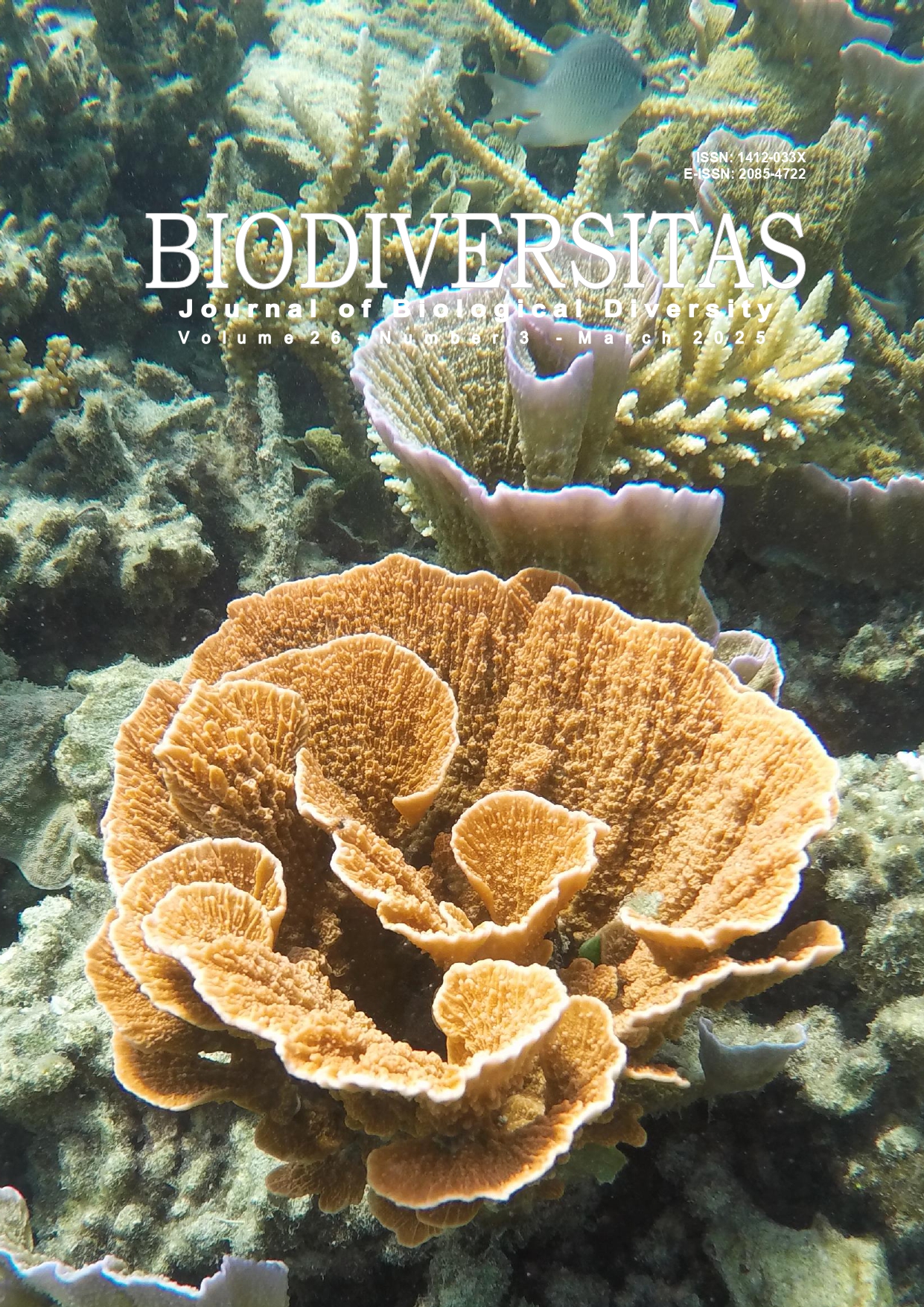Biodiversity, social adoptability, and preference toward managing medicinal plants in homegardens across elevations in the Menoreh Mountains, Kulonprogo District, Indonesia
##plugins.themes.bootstrap3.article.main##
Abstract
Abstract. Budiadi, Irwan SNR, Lestari LD, Madjid MIN, Arifin HS, Nurhayati, Kaswanto, Faisal B, Dahlan MZ, Nadhiroh SR, Wahyuni TS, Ali MS. 2025. Biodiversity, social adoptability, and preference toward managing medicinal plants in homegardens across elevations in the Menoreh Mountains, Kulonprogo District, Indonesia. Biodiversitas 26: 1316-1324. Pekarangan, or "homegarden" is an agroforestry system that provides various products, including low-cost medicinal plants for maintaining family and community health. The Menoreh Mountains in Yogyakarta province, Central Java, is a center of production for medicinal plants that have been utilized by local people for generations. This research was conducted at three elevation levels—100-200 masl (lowland), 400-500 masl (mid-elevation), and >800 masl (highland)—in the Menoreh Mountains, to measure the biodiversity of homegardens, to predict adoption level of and people's preference toward medicinal plants, and to discuss pharmacological activity of the plants against potential epidemics. It involved direct observation of 30 homegardens, and interviews with 45 respondents using 22 close-ended questions from the ADOPT Tool framework. Diversity indices among locations were compared using one-way ANOVA and Tukey HSD post-hoc test, and results from the interviews were analyzed using the ADOPT Tool. The pharmacological activities of the medicinal plants were analyzed through a literature study. The results showed that plant species in the homegardens had five main functions, i.e., food-producing, medicinal, fodder, estate crops, and ornamental plants. A total of 22 species from 13 families of medicinal plants deeply rooted in the local culture were cultivated in the homegardens. Peak adoption of medicinal-plant management in lowland, mid-elevation, and highland communities was predicted at 17%, 98%, and 98% within a period of ten, five, and two years, respectively. Highland people can more easily adopt the cultivation system of medicinal plants than mid-elevation and lowland communities. Turmeric (Curcuma longa) and ginger (Zingiber officinale) were the two most preferred medicinal plants in all locations, that increase immunity via antiviral, immunomodulatory, anti-inflammatory, and antioxidant. This suggests people in the Menoreh Mountains have good resilience to potential epidemics. Still, future research to increase the diversity and characterization of specific compounds of medicinal plants is needed.

